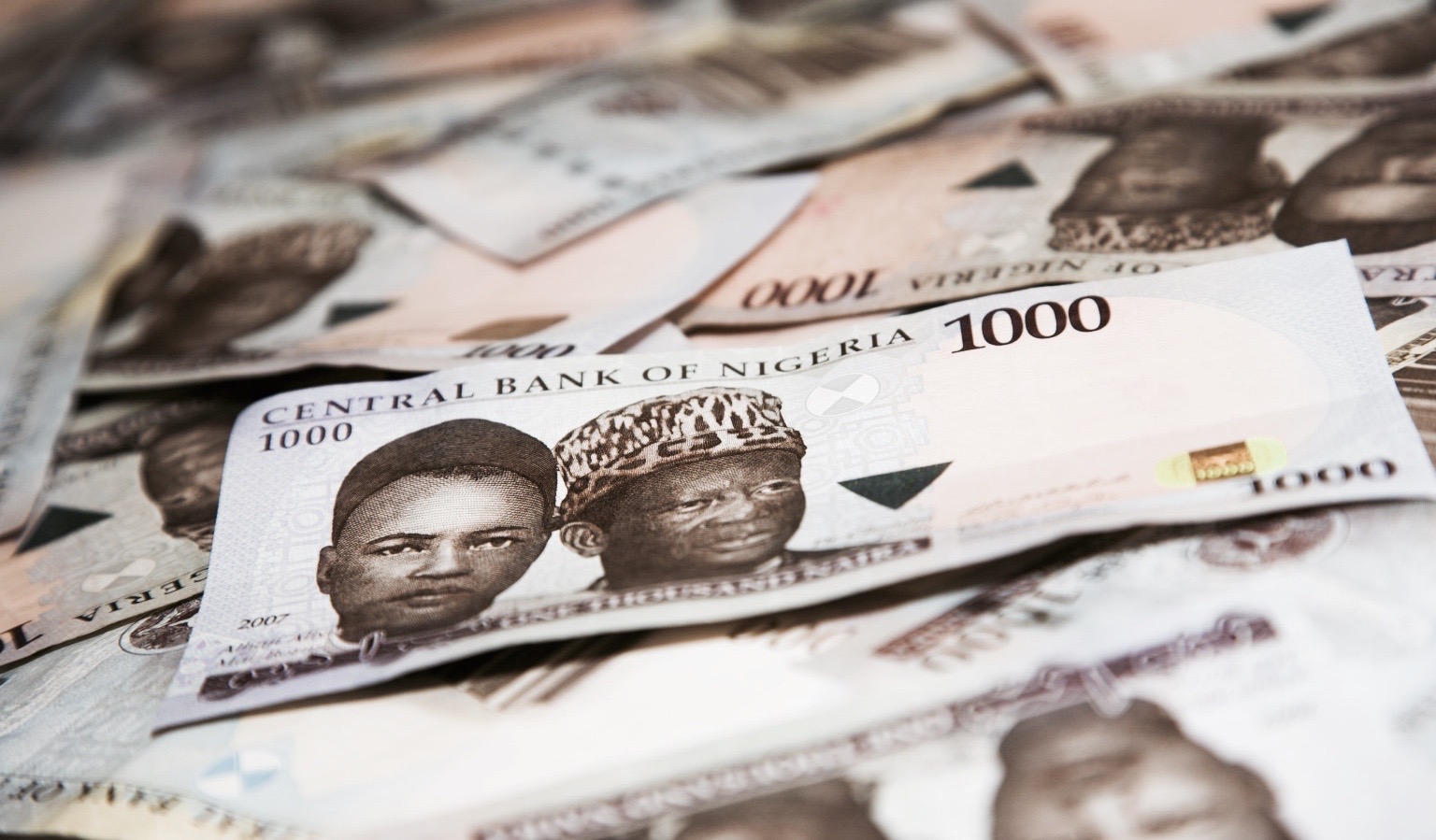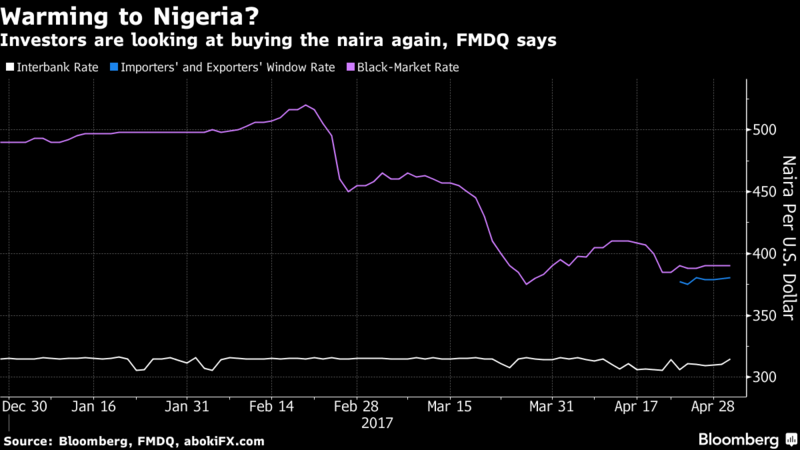
Foreign investors are warming to the foreign-exchange window that Nigeria opened last week to ease a severe shortage of dollars, according to the head of the trading platform overseeing it.
The naira’s depreciation in the window to almost the same level as the black-market rate means the new market is already “nearing equilibrium,” according to Bola Onadele, the chief executive officer of Lagos-based FMDQ OTC Securities Exchange. The central bank is ready to supply dollars to bond and stock investors, even for trades of as much as $100 million, he said.
“There’s already been interest from portfolio investors because they can see that the new window will have buyers and sellers determining the rate,” Onadele said in an emailed response to questions on May 1. “The banks are talking to portfolio investors. Volumes will build up.”
The so-called Investors’ and Exporters’ FX Window, which started on April 24, is the central bank’s latest attempt to lure back investors who fled in the past two years, exacerbating a crisis that caused Nigeria’s economy to shrink in 2016 for the first time in a quarter century. The idea is that by creating a market for some types of investment transactions, policy makers can satisfy calls to float the currency without risking an inflationary spiral that may come from a formal devaluation.
READ MORE: What Investors Need to Know About Nigeria’s Exchange Window
The naira opened on Monday at 380.31 per dollar in the window. That’s about 17 percent weaker than the interbank rate of 315 and close to the rate of 391 on the black-market, which many Nigerian businesses were forced to utilize as hard-currency supplies through official channels dried up. Eligible transactions in the window include those for loan repayments, interest payments, capital repatriation and remittances.
While Nigeria devalued the naira on the interbank market last June, it stopped short of allowing a free float and intervened to prop up the exchange rate. Investors, concerned that the currency was overvalued, have stayed on the sidelines: Nigerian stocks declined 33 percent in dollar terms in the past year, the worst performance globally, according to data compiled by Bloomberg.
Onadele, a former chief trader at Citigroup Inc.’s Nigerian unit who criticized the central bank last October for leaning on dealers not to let the currency fall, said this time around Governor Godwin Emefiele was relaxed about the weaker rate.
Multiple Rates
“The governor isn’t calling up, worrying about the rate,” Onadele said. “The central bank is ready to sell into this window, via the commercial banks. Any foreign portfolio investor that wants to leave Nigeria will get its money. If a foreign portfolio investor wants $100 million tomorrow, its bank should present the trade to the central bank. As long as the investor’s satisfied paying the rate, it will be done.”
Bond and stock investors should disregard the other exchange rates that now exist in Nigeria, with the central bank charging businesses different prices for foreign-exchange depending on their needs.
“Foreign portfolio investors should ignore the multiple exchange rates,” he said. “This new window is the relevant one that applies to them. The way the central has matched sources of inflows and applications appears unorthodox, but it has ensured a smooth take off.”


